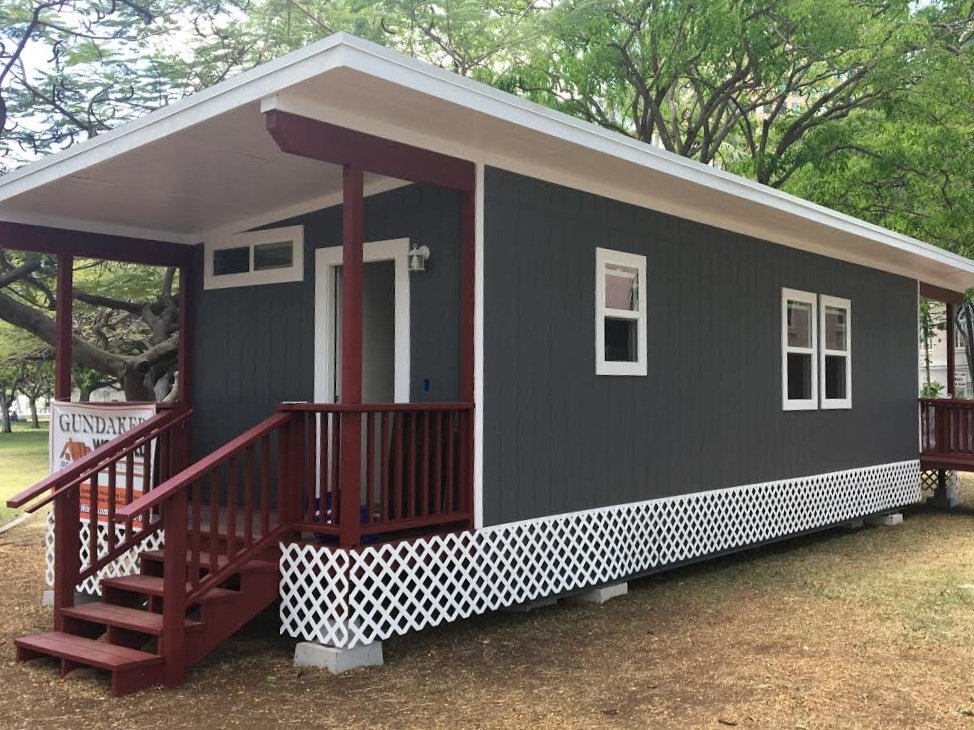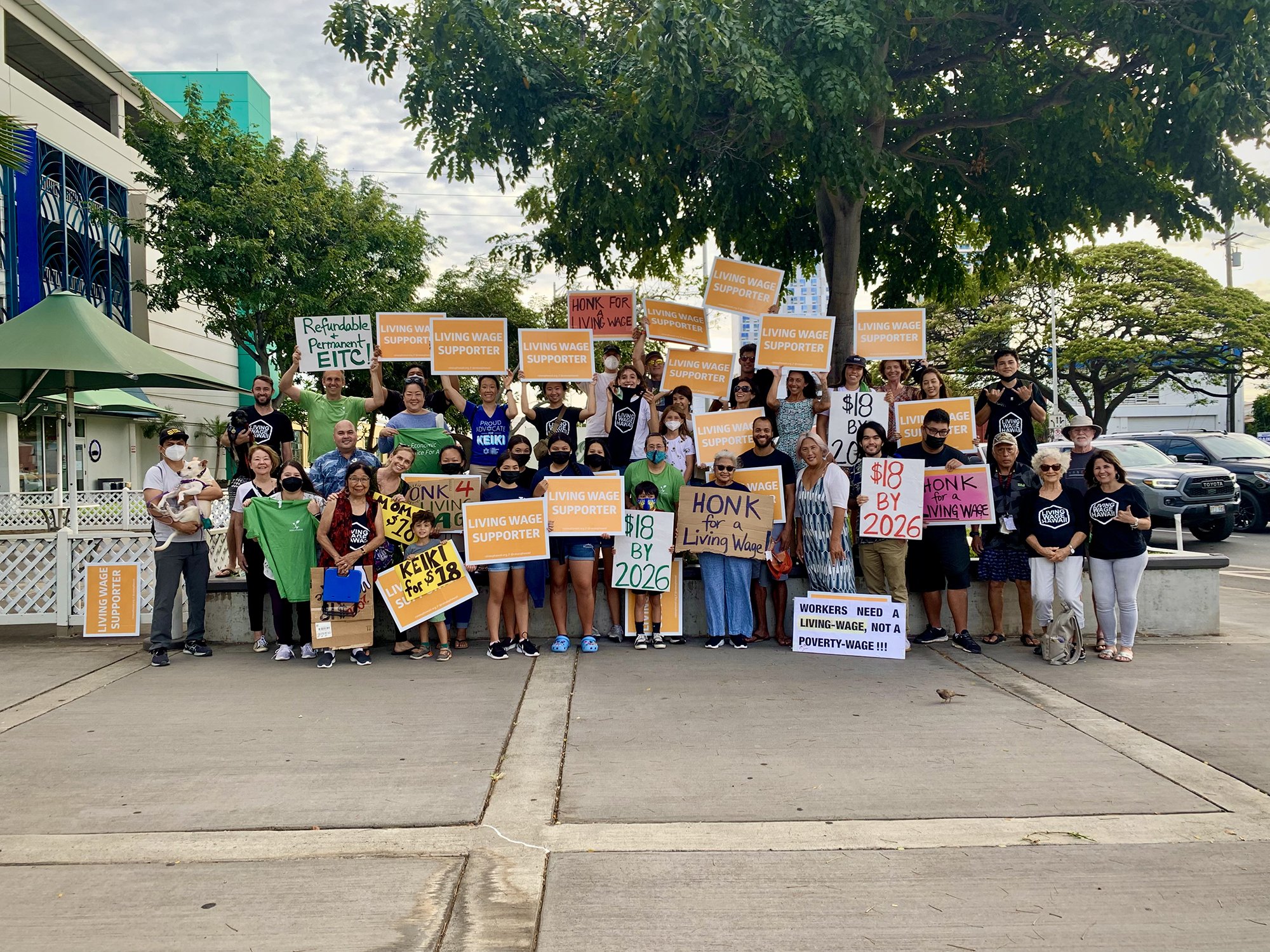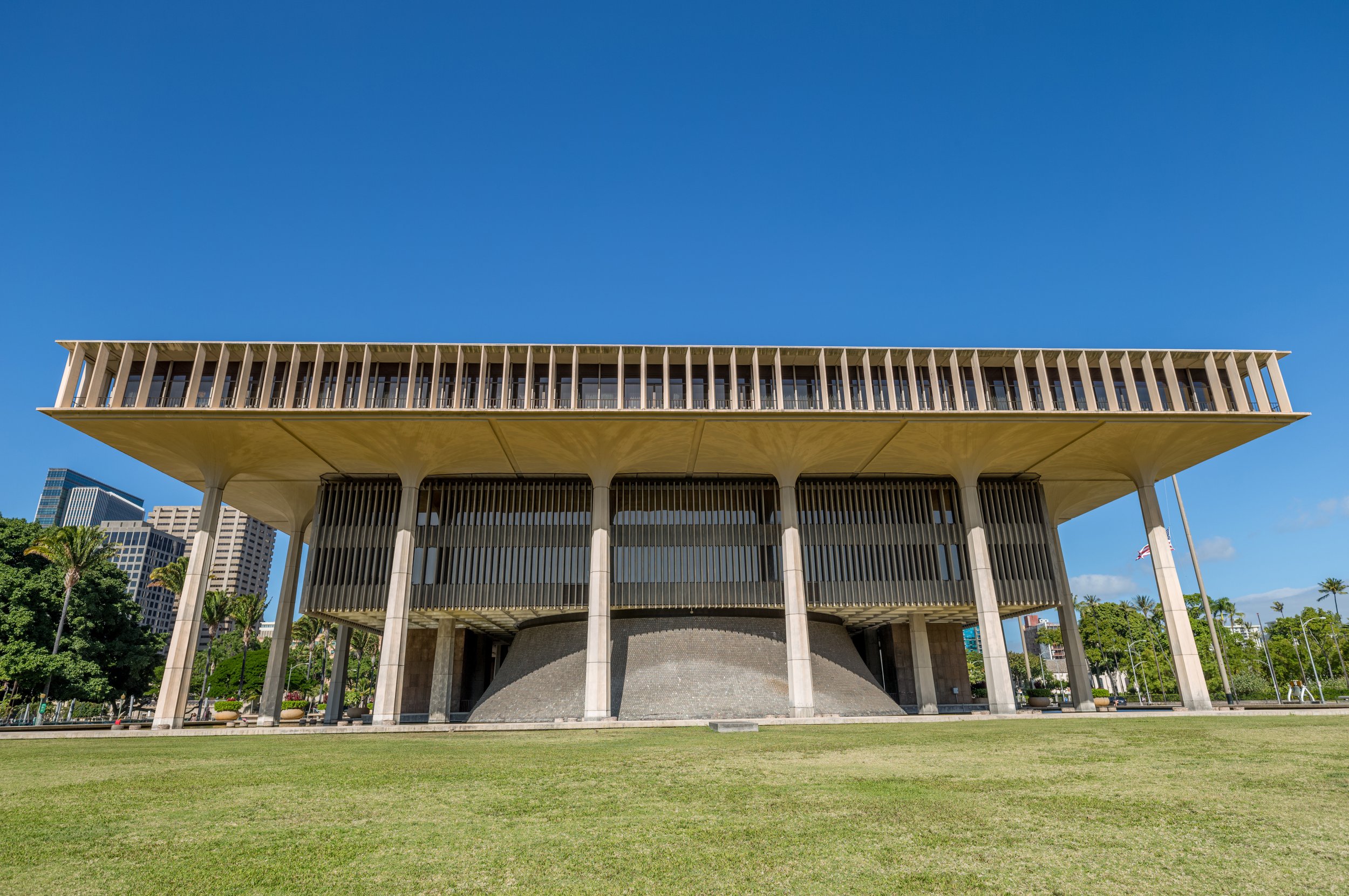
A turning point for SNAP: Strengthening local supports for Hawaiʻi households
Hawaiʻi has an opportunity to build a more resilient, community-driven food system—one that protects families regardless of federal uncertainty.

The chilling effect: How federal cuts and immigration crackdowns threaten food security in Hawaiʻi
The mega budget bill that Congress recently passed narrows who can access critical programs like SNAP and Medicaid, while fueling fear and confusion about who can safely apply for assistance in the wake of increased immigration enforcement.

Wins for food access and low-income families at the 2025 legislative session
While there’s still more work to be done, this year’s wins have laid the groundwork for a future in which food access is treated as a right, not a privilege.

Housing for all: The role of ADUs in strengthening Hawaiʻi’s communities
By creating accessible ADU financing options and streamlining regulatory processes, Hawaiʻi can empower homeowners to contribute to the housing supply while ensuring these new units remain affordable and benefit local residents.

Congress restores eligibility to federal benefits for COFA citizens
President Biden’s recently passed spending bill comes with long-awaited good news for citizens of COFA nations, who are now—once again, after nearly three decades—eligible for federal benefits.

What made the 2022 Hawaiʻi legislative session a win for working families?
After multiple years with little progress on policy to help working families survive Hawaiʻi’s highest-in-the-nation cost of living, several factors came together to deliver a banner year in 2022.

Community-driven progress on Hawaiʻi’s affordable housing crisis
The only to address Hawai‘i’s long-standing housing crisis is through a comprehensive, community- and data-driven approach designed not to just build more housing, but to build the housing that Hawaiʻi residents need and can afford.

Legislature makes historic investments in housing for Hawaiʻi’s most vulnerable
This sessions’ successes must be only the first of many steps toward a Hawaiʻi in which housing is affordable and available to all.

Hawaiʻi should eliminate its tipped sub-minimum wage
Research shows that employers frequently exploit tip credit provisions to pay their employees beneath the legal minimum wage. As a result, tipped workers tend to earn lower, less consistent wages than non-tipped workers, and they are more likely to experience poverty.

Put more money in working people’s pockets and reduce housing costs
This legislative session, Hawaiʻi Appleseed is pushing hard to implement a significant minimum wage increase, expand successful tax credits for low-income families, and lay the groundwork for housing policy that will mean no one in Hawaiʻi is left unsheltered because of poverty.

Federal spending reduced overall poverty last year despite the pandemic-recession
But in Hawaiʻi, tens of thousands of residents below the poverty line still struggled to make ends meet.

Solving Hawaiʻi’s housing crisis means building smart, not just more
An analysis of Maui’s housing stock demonstrates that, although Hawaiʻi is building more housing, we’re not building it at the prices that meet demand from local residents.

Lawmakers must do more to invest in Hawaiʻi regenerative agriculture
The success of sustainable agriculture in Hawaiʻi will be contingent on sizable government investments in both small-scale farmers and the agencies that serve them.

Tax fairness is popular and needed for Hawaiʻi’s future
Most taxpayers agree that a fair and effective tax system is a critical part of building Hawaiʻi’s future.

Making Hawaiʻi's housing market work for local residents
Investors are buying up more of Hawaiʻi’s homes than ever before because our current system encourages them to do so—that’s bad for our economy in the long run.

Native Hawaiian healing from white settler injustices and continued discrimination
Racial healing is no less urgent in Hawaiʻi than it is across the nation. We must advance solutions that support and restore Native Hawaiian self-determination.

Data sovereignty and disaggregation research to be featured at State Capitol
Data disaggregation and data ensure that state spending is adequate and appropriately allocated, and that revenues are assessed and collected fairly.

Now is the time to talk about Pōhakuloa Training Area
The Mauna Kea protests show the growing desire to conserve and protect Hawaiʻi’s natural environment and culture from exploitation and abuse.

Disaggregating data helps replace racist policies with anti-racist ones
One often overlooked way in which racism manifests itself in our policies is through our use of data. Disaggregating data can help end racist policies.

Honolulu’s proposal to regulate short-term rentals needs serious help
Addressing the rampant proliferation of short-term vacation rentals in Hawaiʻi is critical to solving our housing crisis, but it’s imperative that we do it the right way: here’s how.
